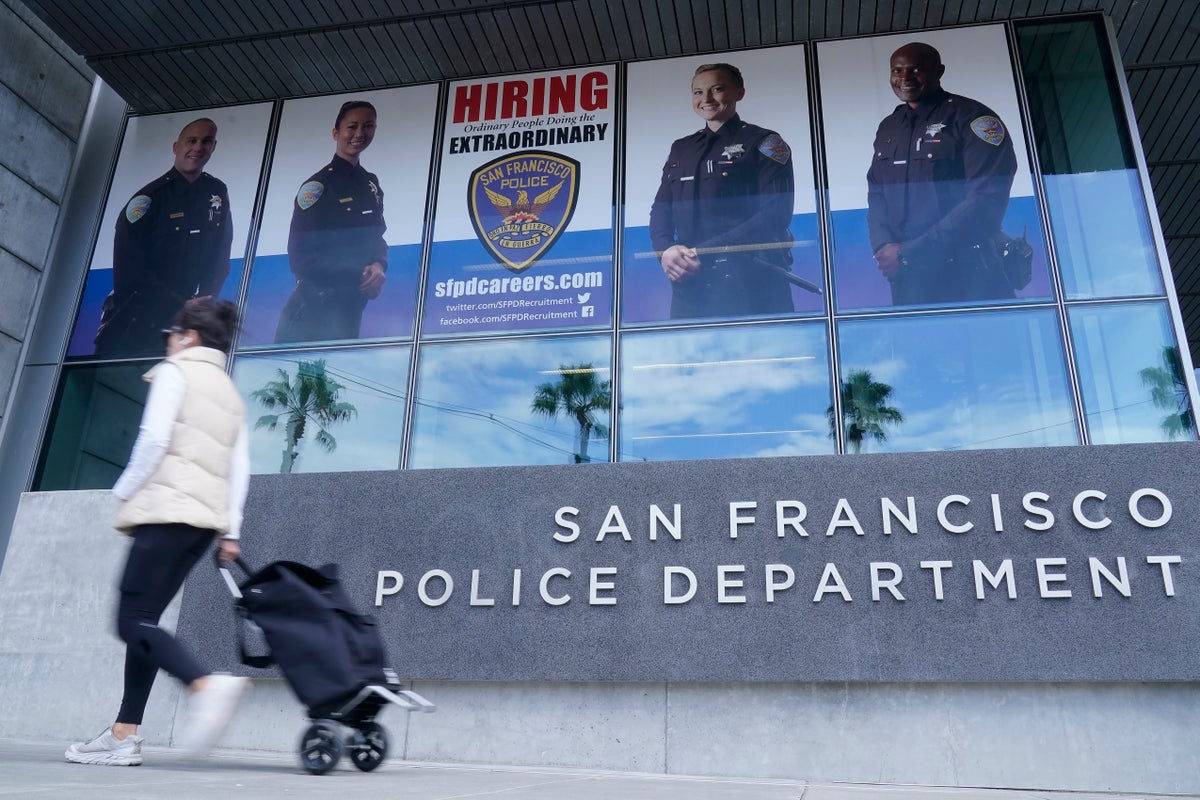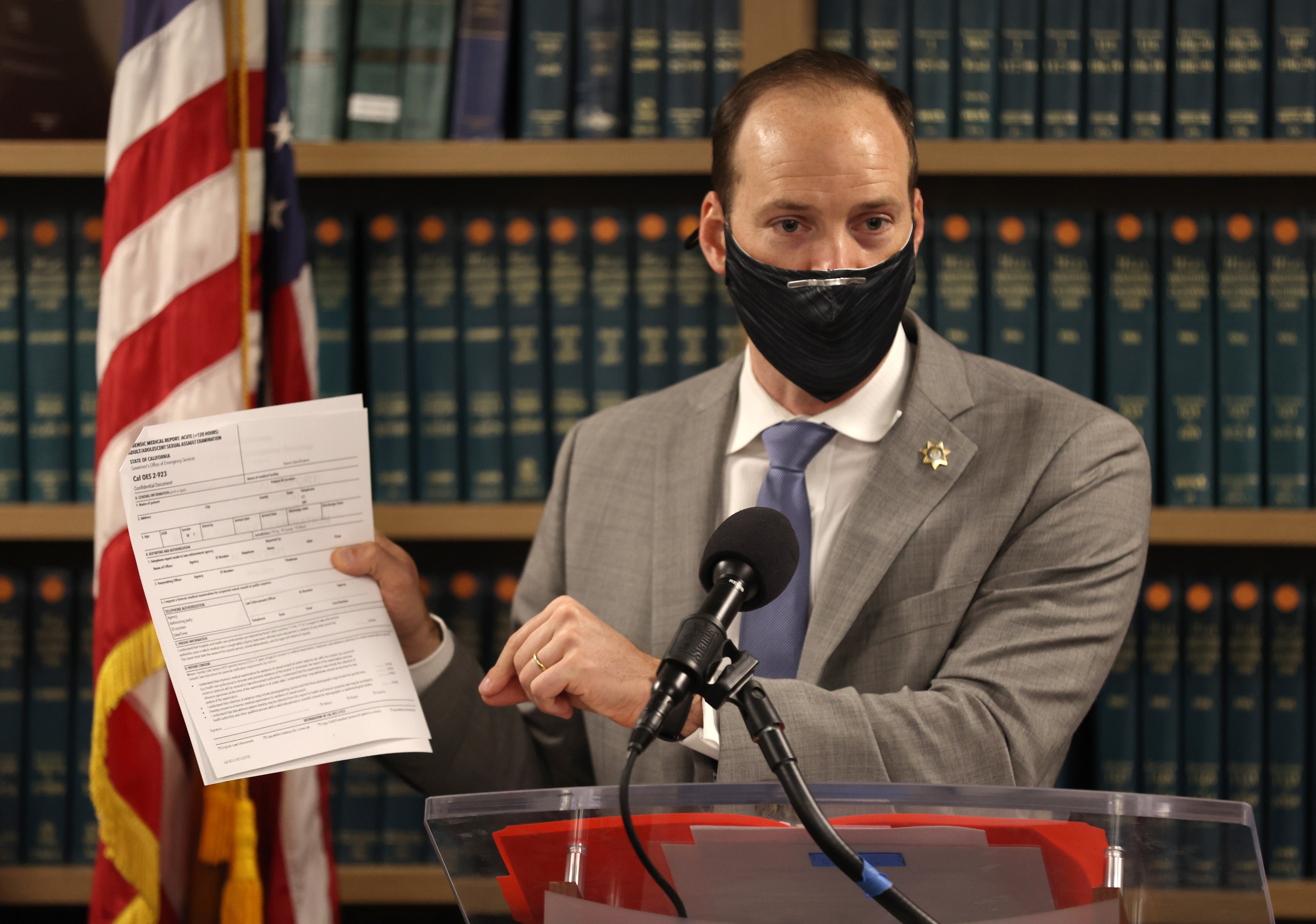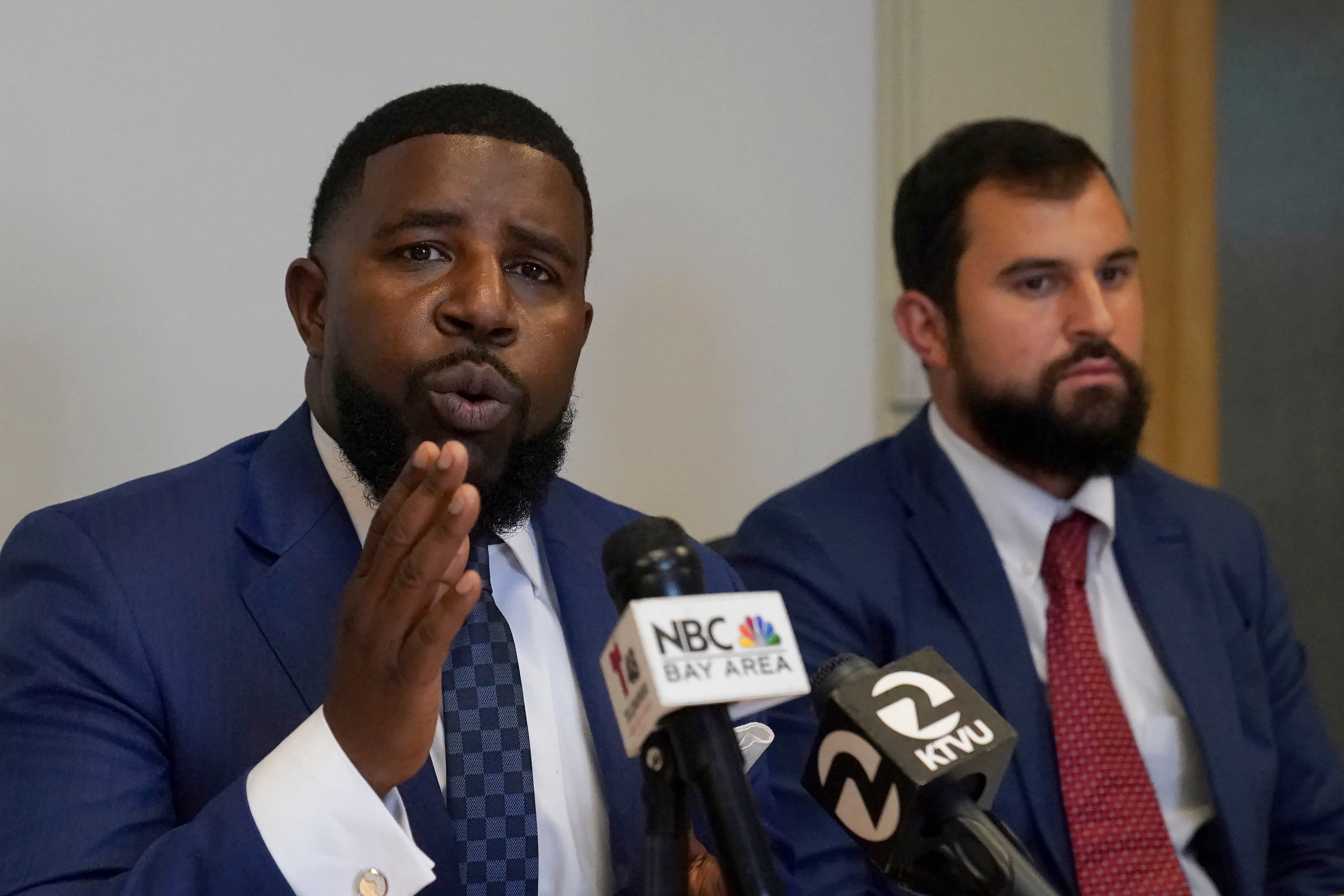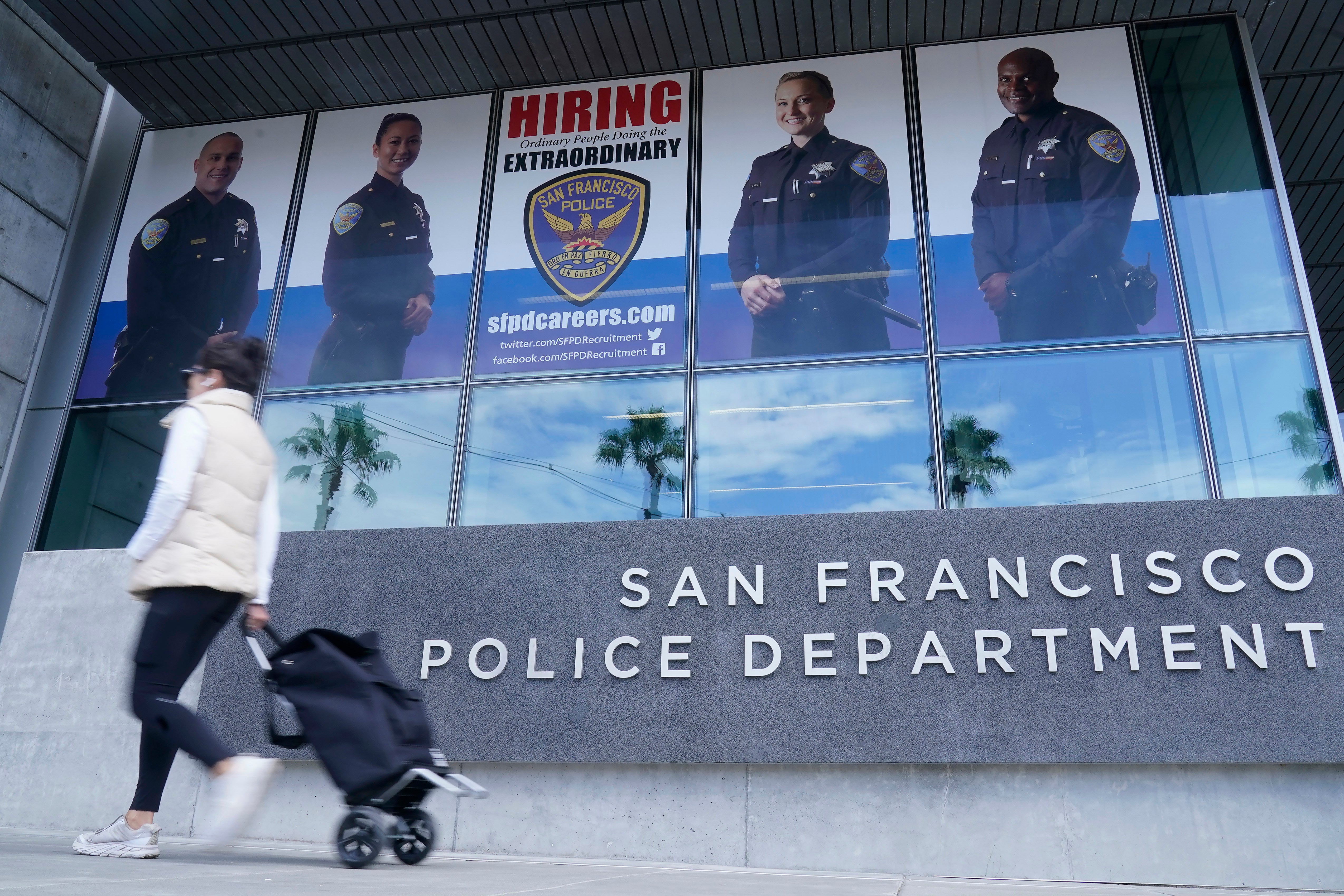
On 8 November, 2016, law enforcement officers in San Francisco took a DNA sample from a rape survivor as part of their investigation into her sexual assault case.
Five years later, police arrested the same woman – identified as Jane Doe in a federal lawsuit – after her DNA sample allegedly matched a sample taken from an unrelated burglary.
The woman never gave consent for her DNA to be used to investigate any crimes other than the one she reported, but her sample was shared with a database that tested her sample against “hundreds if not thousands” of other crime scenes, according to the lawsuit she is now bringing.
On 12 September, following outrage from criminal justice advocates and other officials, the survivor sued the city and law enforcement agencies involved with her case and the charges against her, alleging their “malicious, wanton, oppressive” and “reckless disregard” for her safety in violation of her civil rights.
“Her DNA was likely tested in thousands of criminal investigations, though the police had absolutely no reason to believe that she was involved in any of the incidents,” according to the lawsuit.
Earlier this year, the Board of Supervisors in San Francisco approved an ordinance that prohibits local law enforcement from identifying suspects by using DNA obtained during a rape investigation.
State lawmakers in California also passed legislation that would ban all law enforcement agencies in the state from using those samples for any reason other than their respective rape investigations. Governor Gavin Newsom has not yet signed it into law.
Federal law already prohibits DNA from rape survivors from entering the nationwide Combined DNA Index System, or Codis, a national database maintained by the FBI that allows law enforcement agencies to compare DNA information.
But each state has their own rules for collecting, handling and maintaining such samples, leaving a patchwork of state and local laws governing the administration of local DNA databases.
Earlier this year, the San Francisco Police Commission grilled officials to determine how, exactly, the rape survivor’s DNA sample ended up in its database used to identify potential criminal suspects.
“This was a horrendous mistake,” Police Chief William Scott said in March. “It’s been corrected. Policies have been put in place for this to not happen again.”

DNA samples from crime victims in San Francisco are reported to a “quality assurance” database, which includes thousands of samples – from evidence collected at crime scenes to DNA from Sexual Assault Evidence Kits, commonly known as rape kits, according to crime lab director Mark Powell, who is among the defendants in the survivor’s lawsuit.
Earlier this year, Mr Powell explained to commissioners that the city’s police department works with the quality assurance database and Codis. The lab does not upload DNA samples from rape survivors to Codis, he said.
But when the lab ran a DNA sample collected from the scene of an alleged burglary through both databases, there was a “hit” for a match with a rape survivor.
“There was a piece of the evidence that was gathered from the scene and it was run through the system, and she appeared in both the quality assurance database from her sexual assault kit, as well as the Codis database from her prior arrests,” Investigations Bureau captain Sean Perdomo told commissioners.
Mr Perdomo told commissioners he had discovered that police used 17 DNA profiles from crime victims – including 11 from rape survivors – to identify suspects in unrelated crimes.

The lawsuit alleges that “this policy and/or practice means that once a crime victim’s DNA was taken by [law enforcement], it would be tested for a match against DNA taken from every subsequent crime scene in which genetic material was recovered, regardless of whether it had any relation to the crime suffered by the victim.”
In December 2021, a detective sent a forensic report to Sylvia Lange, a San Francisco sergeant who is also named in the lawsuit, and “indicated that the DNA allegedly taken from the crime scene matched the DNA sample” from the survivor that was taken in 2016, according to the lawsuit.
Ms Lange “sought and received an arrest warrant” relying on probable cause largely from the alleged DNA match, the lawsuit alleges.
“While all charges stemming from this incident against [the plaintiff] were eventually dropped, the appalling, exploitative, and unconstitutional nature of [the] practice cannot be ignored,” according to the lawsuit.
The lawsuit alleges that the ordeal constitutes federal civil rights violations under the Fourth Amendment of the US Constitution, and that the plaintiff suffered “injuries, emotional distress, fear, terror, anxiety, and loss of sense of security, dignity, and pride as United States Citizen”.
Each test of crime scene DNA against the survivor’s DNA in the “quality assurance” database amounts to an “unlawful search” that the plaintiff never consented to, the lawsuit claims.
A spokesperson for San Francisco city attorney David Chiu said in a statement that the city “is committed to ensuring all victims of crime feel comfortable reporting issues to law enforcement and has taken steps to safeguard victim information.”

The case has magnified obstacles across the US for rape survivors seeking justice through a criminal justice system that has struggled to manage a growing backlogs of untested rape kits.
Those “backlogs” typically refer to evidence that arrived at a crime lab that was never tested – sample collections that have outpaced the resources to test and profile them – as well as evidence that was never sent to a lab at all, a so-called “hidden backlog”.
There are nearly 14,000 untested rape kits in California alone, according to the Joyful Heart Foundation’s End the Backlog project.
According to the World Health Organization, 35 per cent of women across the globe, or roughly one-third of the world’s population, are survivors of sexual violence.
RAINN, the nation’s largest anti-sexual violence organisation, estimates that less than one-third of sexual assaults in the US are reported to police, and fewer than 1 per cent of offenders are convicted.
An analysis from nonprofit health policy organisation KFF also found that 66 per cent of women with health insurance who received a rape kit after a sexual assault faced out-of-pocket charges for these services, spending an average of $347, adding additional barriers for survivors.
In February, the city’s then-District Attorney Chesa Boudin – whose office refused to prosecute the alleged robbery case and has dropped the charges against the survivor – suggested that the misapplication of DNA samples in the latest case could prevent people from coming forward and cooperating with law enforcement and prosecutors in other cases.
“It’s already hard enough for sexual assault survivors to make the decision to come forward, report a crime, and undergo an invasive rape kit exam at the hospital,” state Senator Scott Wiener said in a statement following passage of the California bill.
“The last thing we need is to send a message to survivors that if they come forward, their DNA sample may be used against them in the future,” he said.
The National Sexual Assault Hotline is available 24 hours a day by calling 1-800-656-HOPE or online at online.rainn.org
You can contact the Rape Crisis England and Wales helpline by calling 0808 802 9999. The helpline is open from 12pm-2.30pm and 7pm-9.30pm daily.







